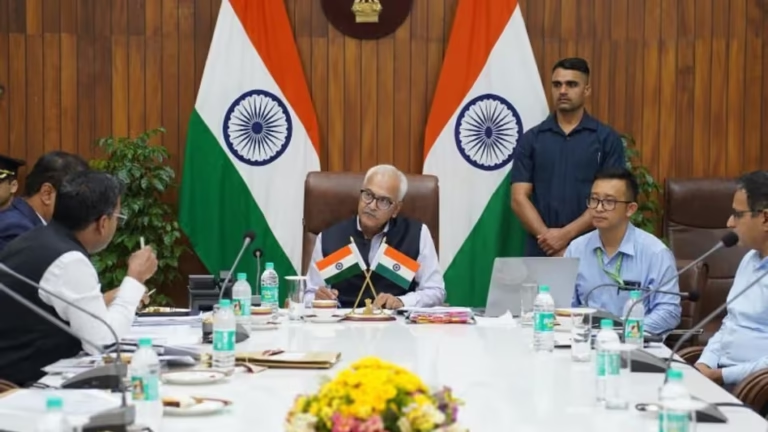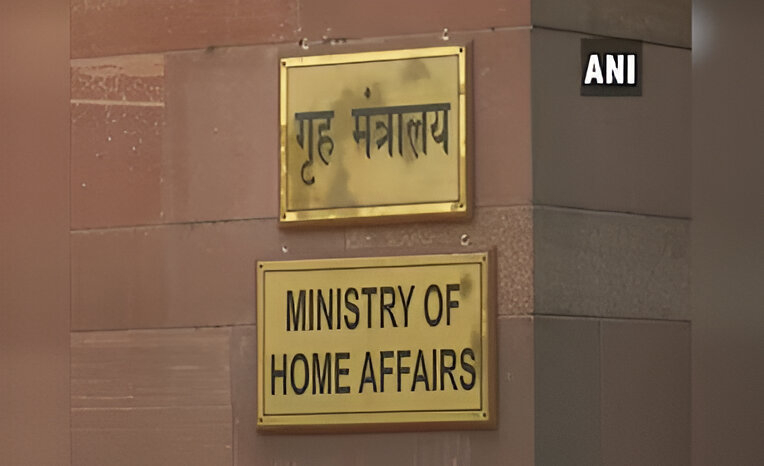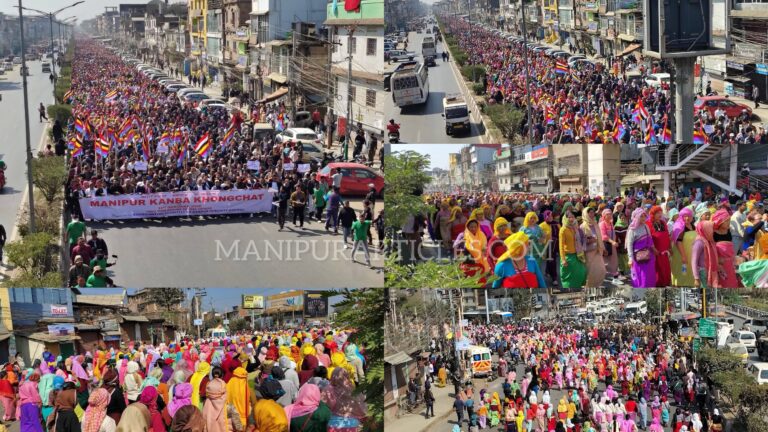Manipur Violence: Gunfire Injures Three Tangkhul Farmers Near Yaingangpokpi
Summary
Three Tangkhul villagers were injured in Manipur’s Imphal East district on November 11, 2024, after being shot by suspected Kuki militants while harvesting paddy near Yaingangpokpi. This marks another instance of escalating violence that continues to affect local farming communities, leading to rising concerns about safety, livelihood, and food security in the area. As villagers grapple with the growing threat, authorities are working to address tensions and ensure safety.
In-Depth Article
Introduction: Living on Edge in Manipur’s Fields
Imagine venturing out to your field every day, uncertain if you’ll make it back unharmed. That’s the grim reality for many farmers in Manipur’s Imphal East district, where gunfire and militant threats have turned routine harvests into dangerous pursuits. In a recent incident, two Tangkhul farmers suffered injuries while harvesting paddy near Yaingangpokpi, in an attack believed to be carried out by Kuki militants. This violence, occurring amid an ongoing struggle for peace, underscores the vulnerability of Manipur’s agrarian communities.
The Escalation of Violence in Imphal East
This incident isn’t an isolated one; it’s part of a troubling pattern of aggression targeting farmers in this conflict-ridden region. Farmers in Manipur’s valley areas, especially near the borders of hill districts, have increasingly found themselves in the line of fire as tensions between hill and valley communities continue to rise.
Every season, especially during harvest time, rural communities face mounting risks. For these villagers, the act of farming is no longer just about planting and harvesting; it’s become a matter of survival. Recent incidents highlight how local disputes have escalated to armed confrontations, endangering civilians who depend on farming for their livelihoods.
Understanding the Impact on Farmers and Food Security
In rural Manipur, agriculture isn’t merely a job—it’s a way of life and the backbone of the local economy. When these attacks interrupt farming activities, the effects ripple far beyond the immediate violence. Farmers lose valuable time, leading to potential crop loss and lower yields, which impacts food supplies and destabilizes the local economy.
Imagine missing your entire harvest season because of a constant fear of attack. These losses translate directly to empty markets and, ultimately, increased food prices. For families who rely on farming, such disruptions lead to food insecurity, not just for them but for the entire region, creating a long-term challenge for community welfare.
The Role of Local Security Forces
In response to the recent gunfire incidents, local security forces have stepped in, aiming to restore some level of normalcy. However, they face significant challenges due to the sporadic nature of the attacks and the difficult terrain that militants use to their advantage.
While security presence has been increased, it’s often insufficient to completely deter the militant forces. Some communities have called for stronger governmental intervention and even additional military support to protect rural populations. But the complexity of the local political and social landscape requires not just immediate action but also long-term, strategic peace-building efforts.
Community Responses and Resilience Amid Crisis
Despite the growing dangers, the communities in Imphal East demonstrate remarkable resilience. They continue to tend to their fields, support each other, and navigate these challenges with solidarity. For many, the sense of community is their strongest defense against the encroaching threats. Villagers band together to share resources, assist each other with farming tasks, and take turns on watch when they can.
Many villagers have also started engaging with local leaders, urging them to seek diplomatic approaches alongside security measures to foster peace. Community-driven advocacy is gaining ground, as villagers understand that long-term peace may only come with mutual understanding and conflict resolution.
The Road to Peace: What Needs to Change?
While immediate protection is crucial, lasting peace will require addressing the roots of the conflict between hill and valley communities. The ongoing violence stems from historical grievances and socioeconomic disparities, which need attention if sustainable peace is to be achieved.
For Manipur’s farmers to regain their sense of security, there’s a growing call for government action that goes beyond policing—one that includes socioeconomic support, fair resource distribution, and conflict mediation. Many experts believe that fostering trust and mutual respect between the communities is essential, alongside efforts to address infrastructure and development in rural areas.
Conclusion: Looking Forward with Cautious Hope
As Manipur’s farmers brave the ongoing challenges, the journey toward peace remains uncertain yet hopeful. Local communities are showing resilience, but they need consistent support to rebuild trust and protect their livelihoods. With comprehensive efforts from both government and community leaders, there’s potential to transform the narrative—from a cycle of violence to a testament of resilience and unity.
FAQs
- What led to the recent violence in Manipur’s Imphal East district?
- The conflict reflects longstanding tensions between hill and valley communities, recently manifesting in attacks on valley farmers by suspected militants from the hills.
- How are local farmers impacted by the ongoing violence?
- Farmers face the risk of injury or death while working in their fields, which affects crop yields, food security, and the economic stability of their communities.
- Is the government involved in protecting these farming communities?
- While security forces are present, many villagers are calling for increased intervention and stronger protective measures from the government.
- What are local communities doing to cope with these threats?
- Communities are relying on each other for support, sharing resources, and working with local leaders to advocate for peace.
- Is there hope for a peaceful resolution in Manipur?
- Many believe a peaceful resolution is possible with increased efforts in conflict mediation, socioeconomic support, and community-building initiatives.



